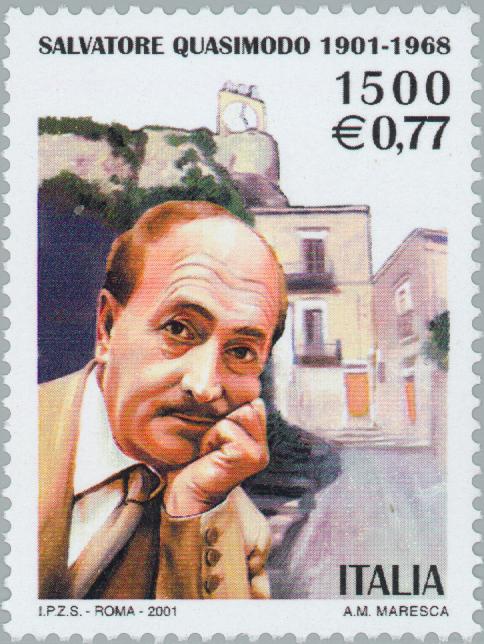Tuesday, May 28, 2013
National Gallery reading
Am reading tomorrow (29 May) at 1.05 pm in the Lecture Room of the National Gallery as part of a series of readings organised by Poetry Ireland and the Gallery. The series marks the Irish presidency of the EU which will be an excuse to include a lot of translations. Here's the latest, this time a poem I couldn't resist by André Frénaud (1907-1993).
House for sale
(André Frénaud)
So many have lived here, who loved
to love, to wake, dust, sweep the floor.
The moon’s in the well and can’t be seen,
the previous owners have disappeared,
taking nothing with them.
The ivy swells in yesterday’s sun,
the coffee stains and soot are staying put.
I fasten myself to mouldy dreams
and embrace the grime of others' souls,
that mix of lace and plans gone wrong.
Concierge of failure, I’ll buy the dump –
if it poisons me so be it, but never fear:
open the windows, put the sign on the lawn,
someone else will come in, sniff the air, begin again.
Here's the original:
Maison à vendre
Tant de gens ont vécu là, qui aimaient
l'amour, le réveil et enlever la poussière.
Le puits est sans fond et sans lune,
les anciens sont partis et n'ont rien emporté.
Bouffe le lierre sous le soleil d'hier,
reste la suie, leur marc de café.
Je m'attelle aux rêves éraillés.
J'aime la crasse de l’âme des autres,
mêlée à ces franges de grenat,
le suint des entreprises manquées.
Concierge, j'achète, j'achète la baraque.
Si elle m'empoisonne, je m'y flambe.
On ouvrira les fenêtres... Remets la plaque.
Un homme entre, il flaire, il recommence.
André Frénaud, Les Rois Mages, Poésie/Gallimard 1987, p.60.
Monday, May 27, 2013
From the Fortress of Upper Bergamo
From the Fortress of Upper Bergamo
(Salvatore Quasimodo)
You heard the cock crowing
from the other side of the walls, beyond the towers
chilled with a light alien to you –
lightning bolt, primal cry, the murmuring
of voices from the cells and the call
of the bird patrolling the dawn.
In a circle of briefest sun
you uttered no words for yourself.
Talismans of a new born world,
lost in malignant smoke,
the antelope and the heron held their tongues.
The February moon passed over
a remembered earth, lit
in its own silence. And you too
move among the cypresses of the fortress
without a sound, where anger
founders on the green of the young dead
and pity once distant is almost joy.
(Giorno dopo giorno, 1947)
Friday, May 17, 2013
The Monster's Breast: Journeying Through Dublin
Read More on Graph Magazine's site
Thursday, May 16, 2013
The Lost Place: Reading Yves Bonnefoy's 'La Maison Natale'

What are we concerned with? What are we really attached to? Are we entitled to reject the contamination of the impermanent and to withdraw into the stronghold of speech, like the king in Poe’s tale, far from the plague-stricken land? Or did we love the lost object for its own sake, and do we want at all costs to recover it? (Bonnefoy, The act and the place of poetry. 102)There is something interesting and powerful about an orchestrated series of poems – the kind of sequence or grouping that sets up conversations between the constituent parts, and where a common stock of images and verbal effects complement and reinforce each other. The frame of a sequence is really a loose kind of house, a dramatic space and a series of interconnected rooms, and those connections are important. It means the different parts can speak to each other and it also means there can be an accumulation of image and mood over the duration of the series.
For some poets, this working by accumulation and accretion is their default mode. These are poets of the architectonic imagination, the great organisers, deployers, orchestrators whose works have strong conceptual frameworks and who think very much in terms of the suite, the sequence, the series, the book.
Yves Bonnefoy has always been this kind of poet, as I was reminded when I found myself reading ‘La maison natale’ from his 2001 collection Les planches courbes. The book is available in a dual language edition (Bonnefoy, The Curved Planks ) with translations by Hoyt Rogers, but the English translations I first read were John Naughton’s, which are available on the Poetry International website. Both are fine translations. I have been reading Bonnefoy on and off for many years, and again, as often happens when I encounter the work, I was immediately gripped by the force of the poems, and by the way they deploy an obsessive imagery of memory and loss where the real and the dreamed are fused to disturbing effect. What follows is an attempt to report on this particular encounter with Bonnefoy, and to try to register, however inadequately, some of his characteristic concerns and effects, something of what makes him one our of era’s unforgettable poets.
Read more on Graph Magazine's new website.
Subscribe to:
Posts (Atom)
Featured post
Call for applications for the Kavanagh Fellowship, 2021
Call for applications for the Kavanagh Fellowship, 2021 Trustees of the estate of Katherine Kavanagh , 3 Selskar Terrace, Ranelagh, Dubli...
-
The Meaning of Simplicity I hide behind simple things so you’ll find me; if you don’t find me, you’ll find the things, you’ll...
-
The Greener Meadow: Selected Poems. Luciano Erba, translated by Peter Robinson. Princeton University Press, 2007. 288 pp. $17.95 / £12.50 ...
-
Back after a long absence with three versions of a poem from the Chinese, for our edification, followed by a moral quandary. The first...


